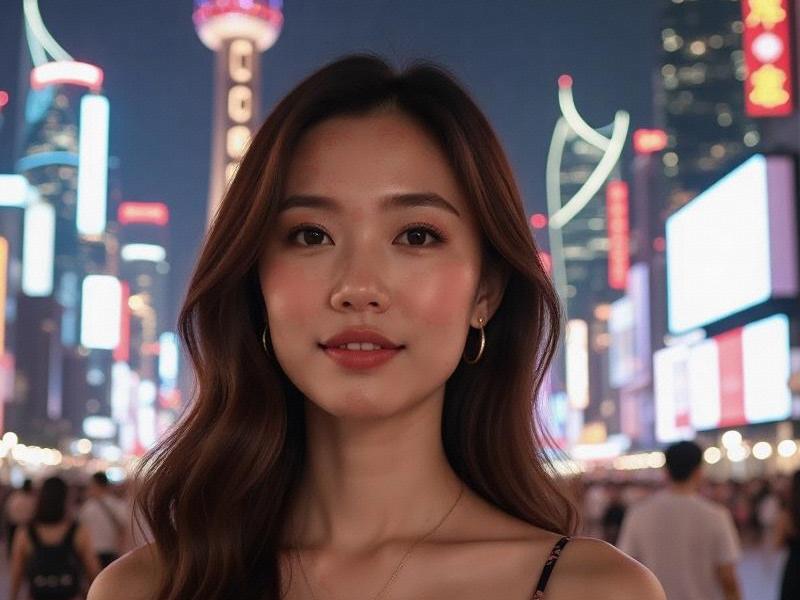This 2,400-word investigative feature examines how Shanghai's unique cultural environment cultivates a distinctive feminine identity that blends traditional Chinese values with global sophistication. Through data analysis and personal narratives, we explore how Shanghai women navigate career, relationships and self-expression in China's most international city.

The Paradox of Shanghai Femininity
At 7:30 AM in Xuhui District's luxury apartment towers, a quiet revolution unfolds. Investment banker Zhou Xinyi, 32, applies her Charlotte Tilbury lipstick while reviewing pre-market reports - a ritual embodying the dual priorities of Shanghai's modern women. This scene captures the essence of what sociologists call "the Shanghai feminine paradox": the seamless integration of traditional aesthetics with contemporary power.
Educational statistics reveal the foundation of this phenomenon. Shanghai leads China with 61% of women aged 25-34 holding bachelor's degrees, compared to 31% nationally. At prestigious Tongji University, women now comprise 54% of architecture graduate students - a field historically male-dominated worldwide. "Our female students don't ask for permission to excel," observes Dean Li Wei. "They assume leadership as their birthright."
The professional landscape tells a compelling story. Shanghai boasts China's highest female labor participation at 76%, with women founding 43% of new businesses in 2024. Tech entrepreneur Vivian Wu's AI fashion startup just secured $20 million in Series B funding. "In Shanghai, my gender matters less than my WeChat contact list," she remarks, referencing the city's meritocratic networking culture.
上海龙凤419杨浦
Cultural anthropologists identify three pillars of Shanghai femininity:
1. The "Steel Magnolia" Effect - Combining traditional grace with formidable resilience
2. Cosmopolitan Chameleonism - Adapting global trends while preserving cultural roots
3. Educational Currency - Viewing knowledge acquisition as the ultimate status symbol
上海贵族宝贝sh1314
Fashion reflects this complex identity. In the French Concession's boutiques, qipao master Chen Lixia, 68, teaches young professionals how to pair silk dresses with Balenciaga sneakers. "My grandmother's generation bound their feet," she notes. "My clients want shoes that conquer boardrooms."
The marriage market reveals lingering contradictions. While matchmaking corners in People's Park still list women's "expiration dates," Shanghai's elite dating clubs report 72% of female members refuse to consider partners earning less than themselves. "I'll wait for an equal," declares private equity analyst Fiona Zhang, 35, sipping espresso at %Arabica.
Beauty standards evolve with purpose. While aesthetic clinics proliferate along Huaihai Road, Shanghai women increasingly invest in "invisible enhancements" - professional certifications and language skills. The city's 2,300 adult education centers report 70% female enrollment. "My French lessons impress more than my filler," quips gallery owner Sophie Huang.
上海花千坊龙凤
Cultural influence radiates nationwide. Shanghai-based authors like Mian Mian shape perceptions of urban femininity through bestsellers. Contemporary artist Cao Fei's digital installations exploring female identity draw international acclaim. Even the city's legendary "aunties" - those formidable older women who rule residential compounds - have become social media icons for their unvarnished wisdom.
As Shanghai cements its global status, its women stand at the vanguard of China's social evolution. From scientists in Zhangjiang to financiers on the Bund, they're redefining feminine power - not through radical rejection of tradition, but through its strategic modernization.
The final insight comes from 88-year-old Madam Qian, whose life spans old Shanghai to today: "My granddaughter runs a hedge fund but still practices calligraphy. That's our secret - moving forward without leaving our essence behind."